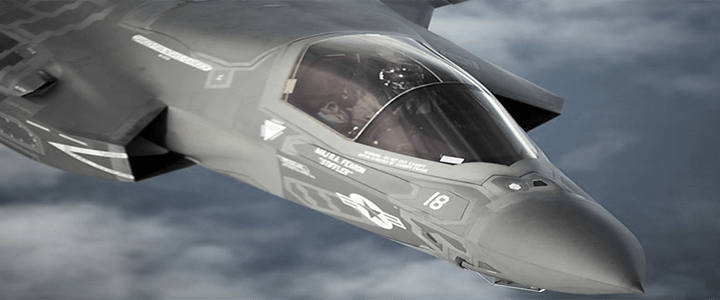Lockheed Martin’s F-35 Lighting II Joint Strike fighter is, as noted here recently, the most expensive weapons system program in history. It’s normally a good thing when the U.S. can sell expensive pieces of military hardware overseas, because doing so helps decay some of the research and development costs and reduce the unit cost of the aircraft.
This weekend’s revelation that the Trump administration has reversed Obama-era decisions and taken the first steps to selling the next-generation fighter the the United Arab Emirates should be welcome news. As one has come to expect, nothing is certain these days.
Classified briefings and QME
Before a foreign government can decide to buy a weapons system, it needs to learn (a least some of) the classified details regarding its capabilities. Reporting from the Dubai Air Show, DefenseNews correspondent Barbara Oppel-Rome reported that although the Trump administration has not yet agreed to provide that briefing to UAE officials, it now says it is “considering” doing so. This is a small, yet significant development.
Daily Intel pal David Des Roches is the Senior Military Fellow at the Near East South Asia Center for Security Studies, one of five Department of Defense “regional centers.” These centers are essentially DoD think tanks dedicated to enhancing security cooperation between the U.S. and other countries. In a Facebook post on Sunday, Des Roches explained that the government’s policy “has been to not discuss weapons systems with a country if we’re not prepared to sell the weapon.”
He said that in the past, making such a briefing available would mean that the U.S. was open to a deal. “I’m not sure if it means the same thing now,” he said, “but the Emiratis will certainly think so. And this is a win for them.”
The main stumbling block to such a deal would be Congress, who has mandated that the U.S. ensures that Israel maintains a “Qualitative Military Edge” over its regional adversaries. As described by the Foundation for Defense of Democracies, a pro-Israel think tank, “QME is intended to provide Israel with the necessary means to successfully deter and defend itself, by itself, against any likely combination of threats.”
So any sale of F-35s to the Emirates or any other Gulf state would have to be balanced against Israel’s ability to defend itself. As one retired diplomat noted, the 1990s-era sale of F-16s to the UAE, which helped finance R&D for needed upgrades, was possible because Israel was already buying the same model as the Emirates.
Another strategic advantage
The F-35 is actually a joint program between the U.S. and seven of our NATO allies, and Australia. Additionally, three countries are already scheduled to buy the planes though the Foreign Military Sales program: Japan, South Korea… and Israel. So selling the aircraft to the UAE doesn’t seem like it would upset the balance of power in the Middle East, which is a good sign for everyone involved.
But there’s one more, very strategic reason to push ahead with the UAE deal. Just last month, Russian news agency TASS reported that the Emirates were looking to buy about a dozen SU-35S Flankers, the Kremlin’s most advanced fighter. TASS said a Russian government source told it, “They want a lot, over a squadron, but the exact number will be specified in the course of negotiations that may be held in November during an air show in Dubai.” It is not a coincidence that the administration announced its reversal just in time for the Dubai Air Show.
So, to review, selling the F-35 to Dubai helps with the program’s costs, likely doesn’t degrade Israel’s defense capabilities, and sticks a metaphorical finger in Vladimir Putin’s eye.
Sounds like a win all around.



